The condensed matter group includes the following faculty members: Professors K. Makris, G. Siviloglou, S. Sotiriadis, G. Tsironis, as well as, Emeritus Professors E. Economou, N. Flytzanis, and X. Zotos, along with postdoctoral fellows, graduate students, and visitors. The group has a strong research tradition with many international collaborations across various areas of condensed matter physics. It regularly organises international conferences and workshops hosting established researchers from around the world.
Major Research Directions
One of the main goals of condensed matter physics is to understand the macroscopic behavior of matter. Starting from the fundamental microscopic properties of constituent particles and their interactions, and applying the basic principles of quantum and statistical mechanics, condensed matter physics can accurately explain the thermodynamic and material properties of such complex systems in accordance with experiments. Thus, novel materials and devices (from microscopic to mesoscopic scale) can be designed and implemented, providing applications in many fields of science and technology. From the discovery of transistors, electronics and semiconductors to the statistical mechanics of complex systems and superconducting qubits used in quantum computers, condensed matter physics has an astonishingly wide range of relevance, both in terms of topics and perspectives. This exceptional feature makes this field of physics fascinating from a fundamental research point of view, while at the same time being at the forefront of technological progress and innovation.
The theoretical and experimental activities of faculty members cover various areas of modern condensed matter physics and can be summarized in the following five major directions:
Quantum Many Body Physics
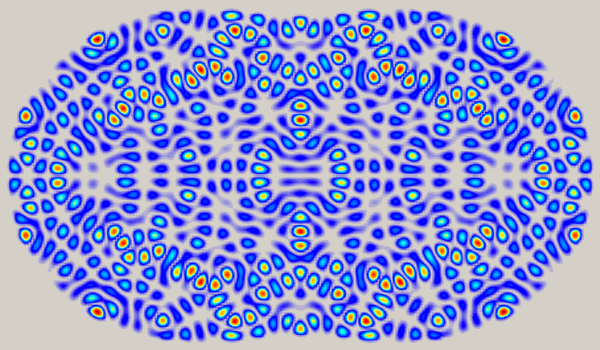
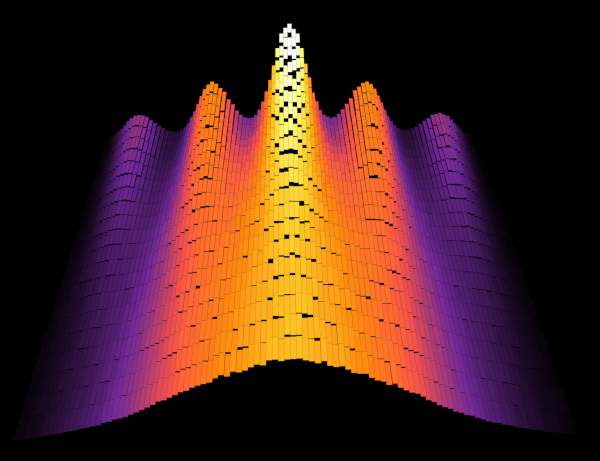
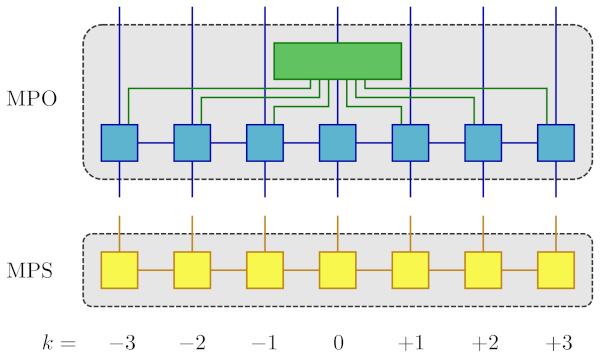
Quantum many-body physics stands at the intersection of fundamental science and cutting-edge revolutionary technologies like quantum computers and quantum devices. Particle interactions and strong correlations play a crucial role in these systems and their study lies at the core of this area. Topics of research include:
- Strongly Correlated Quantum Systems
- Relativistic Quantum Field Theories as quantum many-body models
- Out of equilibrium dynamics: quantum quenches and transport
- Quantum Chaos – Random Matrix Theory
- Integrability
- Quantum ergodicity and thermalization
- Classical simulation with Tensor Networks
Nonlinear Physics and Complexity
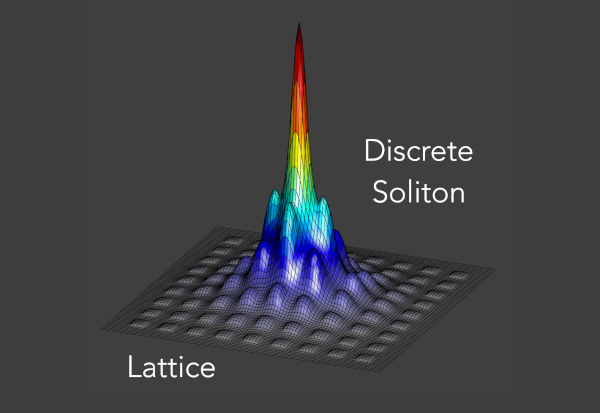
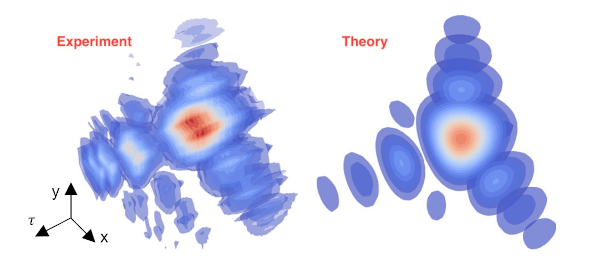
Interactions at the semiclassical level lead to emergent behavior such as nonlinearity and complexity that are of fundamental importance for a wide class of phenomena. Topics of research include:
- Solitons, Breathers, Chaos, Nonlinear Waves and Instabilities
- Quantum-Classical and Non-equilibrium Statistical Mechanics
- Quantum Metamaterials, fluxon dynamics in superconducting Josephson junctions
- Photonic Crystals/Lattices, Topological Band Theory, topological insulators
- Disordered Physics – Anderson Localization
Non-Hermitian Physics
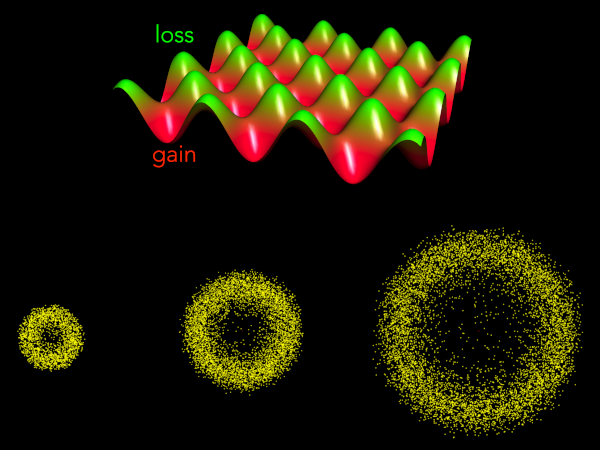
Non-Hermitian physics is devoted to the study of classical and quantum systems that are open and interact with the environment. Such open systems are described by effective non-Hermitian operators, and controlling their openness provides a new degree of freedom that was never exploited in the past. Thus non-Hermitian physics is one of the frontiers of photonics, topological condensed matter and open quantum systems. Topics of research include:
- Parity-time symmetry breaking
- Exceptional points physics
- Non-Hermitian Quantum systems
- Non-Hermitian Photonics
- Non-Selfadjoint Operators, Pseudospectra and Random Matrix Theory
Quantum Simulators with cold atoms

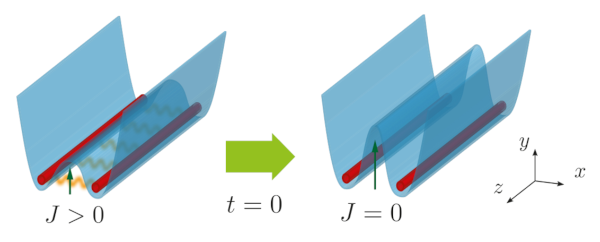
Quantum simulators are an active area of research at the interface of condensed matter and atomic physics. In fact, cold atoms have emerged as a powerful experimental platform for simulating quantum models that cannot be solved analytically, and have played a key role in the emergence of new quantum technologies. Topics of research include:
- Theory and experiments of cold atom systems simulating the Bose Hubbard model, Hofstadter model and sine-Gordon model
- Spin-orbit coupled quantum gases
- Synthetic magnetic fields
- Atomic Microscopes
- Atom chip technology
Magnetic Materials-Magnetism
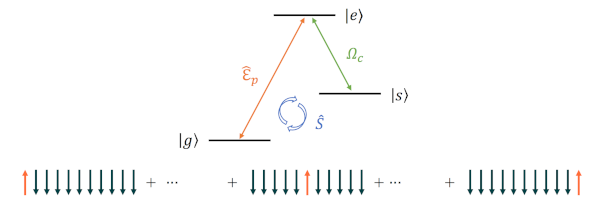
Magnetism is an active field of research in condensed matter physics and deals with the properties of materials that exhibit intriguing magnetic behavior. Topics of research include:
- Spin chains – Quantum Magnetism
- Skyrmions, magnons, magnon-photon interactions
- Nanomagnetism
- Spintronics
- Transport and thermal effects
Complex systems and Artificial Intelligence
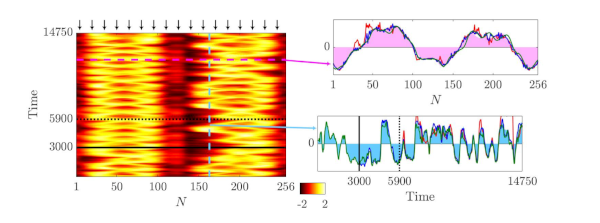
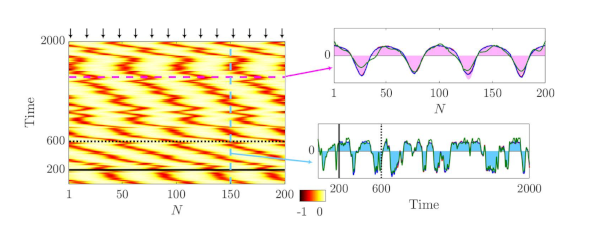
Complex systems are analysed using AI tools in order to increase predicability. Chimeras are spatiotemporal structures that have chaotic and regular parts. Machine learning techniques enable their analysis and future prediction. Topics of research include:
- Physics‐informed machine learning
- Quantum neural networks
- SQUID and turbulent chimeras
- Discrete Breathers
- Biological and Medical Physics
The research activities of the division are strongly related through active collaborations to the Institute of Electronic Structure and Laser (IESL), FORTH, the Institute of Theoretical and Computational Physics (ITCP) and the Crete Center for Quantum Complexity and Nanotechnology (CCQCN).
Related Undergraduate and Graduate Courses
Apart from relevant mandatory courses, there are several elective courses that are related to the research areas of the condensed matter physics group. These are:
- Φ-252 Introduction to Data science and Machine learning
- Φ-253 Introduction to Data science and Machine learning II
- Φ-302 Electromagnetism II (Waves)
- Φ-351 Computational Physics I
- Φ-361 Introduction to Optoelectronics - Photonics
- Φ-406 Introduction to Fluid Mechanics
- Φ-441 Introduction to Condensed Matter Physics
- Φ-442 Condensed Matter Physics
- Φ-505 Statistical Physics
- Φ-523 Quantum many-particle systems
- Φ-565 Foundations of modern optics
- Φ-665 Quantum Electronics I - Theory and Technology of Laser
- Φ-669 Advanced methods of Computational Physics
- Φ-703 Applied Quantum Mechanics
- Φ-800 Quantum Optics and Quantum Information
- Φ-841 Special topics in Condensed Matter Physics I
- Φ-842 Special topics in Condensed Matter Physics II
- Φ-963 Special topics in Photonics – Modern Photonics




